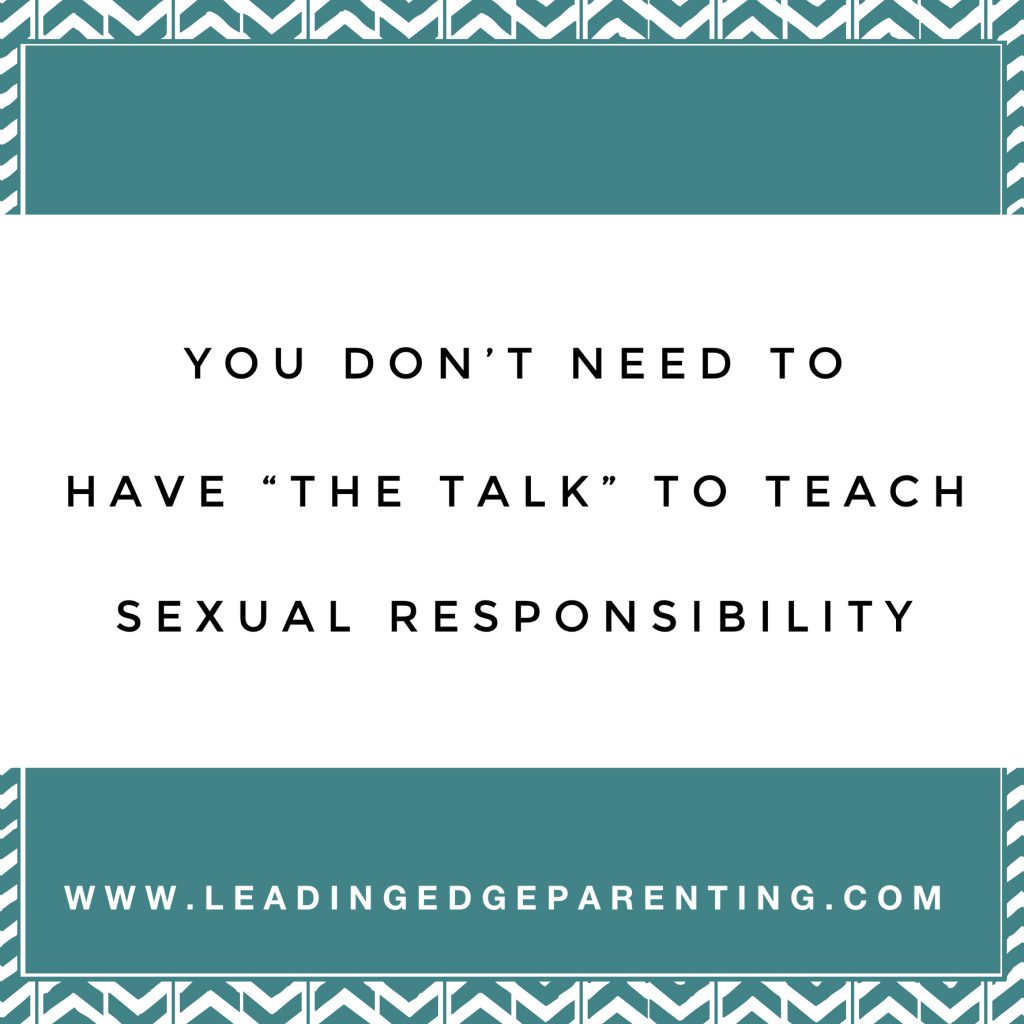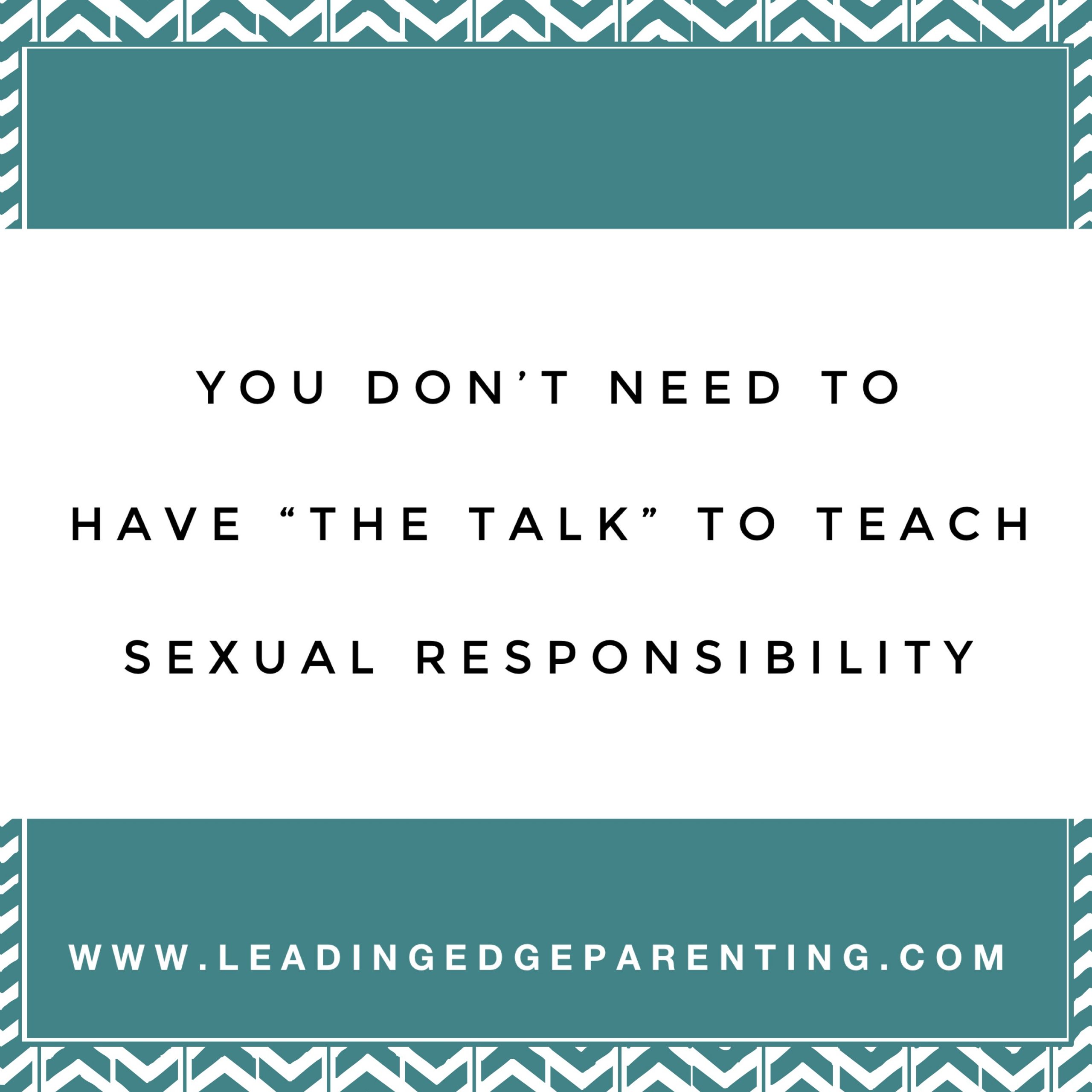
My father-in-law gave my husband profound advice instead of ‘the talk.’ He told his son to go to the playground and the other kids would give him answers to any questions he had.
And that’s how the father of my children learned about sex.
I asked my adult kids if they remember me having ‘the talk’ with them.
They both said, “No.”
Yikes…I was the expert and I didn’t know how to have it either.
Why is it so damn uncomfortable?
Look. Sex is very personal and private and loaded with all kinds of secret fantasies, shame and judgment.
You don’t have to ever go there.
The little kids just want to know how the baby gets in the mommy’s tummy.
The older kids really DON’T want to know what you think about the subject — it makes them queasy just to think that you ‘do it.’
So, let me make this a bit easier for you.
YOU NEVER HAVE TO HAVE ‘THE TALK’ IF YOU DON’T WANT TO.
Just be conscious of the messages that your kids get from you and they’ll figure out the rest.
But let me warn you – you may want to hold on to your wine glass as you think about this stuff.)
Here are 10 ways to prepare your kids for responsible sex without having to have ‘the’ conversation.
1. BODY IMAGE :: How you talk about your own and your child’s body give messages about self-worth. Is ‘looking good’ a bit too important in your home? Does your daughter hear you talk about your big butt or your new diet? You MUST get over your own negative self-image in order to help your kids deal with the overwhelming pressure to have a photo-shopped body.
2. DAD’S MATURITY :: Is Dad emulating a standard of value and respect? Does he comment on “hot chicks” or “fat sluts”? Grow up dad. Your kids are learning their values FROM YOUR BEHAVIOR.
3. USE REAL WORDS :: Using nicknames for body parts gives children the message that there is something wrong there. Children learn to be less uncomfortable when anatomically correct language is used.
4. MASTURBATION IS NORMAL :: If you find your daughter is rubbing herself or your son observes his penis getting hard, you just gotta over your own discomfort. Yes; move through your feelings and acknowledge the naturalness of it all… and then, without judgment, remind them that it is something done in private.
5. NEVER FORCE YOUR KIDS TO KISS OR HUG RELATIVES OR STRANGERS :: Many cute, well-mannered, ‘good’ children who grow up with pressure to listen to authority become perfect victims of sexual abuse, especially from family friends, relatives and people in power. Ooooooh, this is a hard one because we all want our kids to be cute and well mannered! Never sacrifice your child’s safety or comfort to please another adult — and teach them that if someone makes them feel uneasy it is ALWAYS ok to say “No.”.
6. CULTIVATE SELF-LOVE :: Your body belongs to you — so love it, cherish it and take really good care of it! This MUST be the overriding sex talk of childhood.
7. NEVER MISTAKE SEX FOR LOVE :: Have conversations about the different love languages and how it feels when someone treats you with tenderness and understanding. Children need to see their parents giggling, hugging, and spending special time together. Kids who don’t feel loved at home become teenagers who look for love in all the wrong places out in the world.
8. ENCOURAGE YOUR KIDS TO HAVE A VOICE :: You don’t have to agree with them but let them know that you respect their opinions. Become a safe haven for them. If you insist that they can tell you anything but they experience you falling apart with the little things, they’ll keep the big stuff private.
9. USE THE TV AND CAR RIDES FOR HONEST CONVERSATIONS :: When you pass billboards or see ads that use sex as a come on for buying merchandise ask your school age kids why they think that kind of ad sells. Don’t be afraid of these talks…they ARE ‘the talk.”
10. PLEASURE IS GOOD :: You can share light tickles, foot massages, and back rubs with your kids. When they start to ask the hard questions you can remind them that pleasure is a good thing and that sex is pleasure that comes with grown up responsibility. Depending on the age and maturity level of your child they may ask more questions.
It is never too soon or too late to start these conversations.
The big challenge is to LIGHTEN UP and — NOT LECTURE.
Now that I think about it, I cannot imagine my father in law having any of this awareness or conversations with his children.
And that’s why he sent them out to the playground to gather information.
Our playgrounds have become the internet and this is a generation of parents who get to do it better.
[x_author title=”About the Author”]

